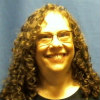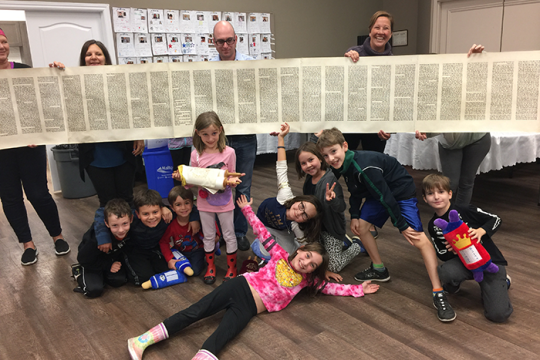
In most ways, my observance of Yom Kippur won’t be much different than thousands of other Jews in pews across North America.
We’ll fast.
We’ll pray.
We’ll browse.
Wait, what was that last thing?
We’ll browse?
Indeed.
Every Yom Kippur since 2007, my dad and I have spent part of the early afternoon – during the children’s service – browsing in the Barnes and Noble near his congregation. More than just a way to pass the time between services, this minhag (custom) is our chance to reminiscence about books we’ve each read, discuss the ones we think we’d like to read, and compare notes on still others that we’ve heard about but not yet read. For me (and for him, too, I hope), this time together is now as much a part of the High Holidays as round challah and apples and honey.
This year you may have an opportunity to browse as well.
One of the features of Mishkan Hanefesh, the new Reform machzor (High Holidays prayer book), is a diverse selection of alternate readings, designed, in part, for browsing. These words – in the form of poems, quotes, stories, and more – offer a range of thoughts, ideas, and perspectives that complement the book’s traditional liturgy for these intense days of personal introspection.
As I explored the machzor, a few passages resonated especially strongly with me, offering views that are helping advance my own cheshbon hanefesh (accounting of the soul), a task many Jews intentionally and deliberately take on in the weeks leading up to the High Holidays.
The first was a poem called “Prayer” by Marie Howe, a former New York State poet laureate:
Every day I want to speak with you. And every day something more important
calls for my attention—the drugstore, the beauty products, the luggageI need to buy for the trip.
Even now I can hardly sit hereamong the falling piles of paper and clothing, the garbage trucks outside
already screeching and banging.The mystics say you are as close as my own breath.
Why do I flee from you?My days and nights pour through me like complaints
and become a story I forgot to tell.Help me. Even as I write these words I am planning
to rise from the chair as soon as I finish this sentence.
Another reading, “The Gift of Honor,” seamlessly combines an ancient teaching from Pirkei Avot with one from Abraham Twerski, a 20th-century American Hasidic rabbi, into a poignant reminder to readers to seek out the divine spark in everyone – especially when it’s not so easy to see:
Ben Azzai used to say:
Treat no one with scorn;
Regard nothing as useless,
For all people have their moment,
And all things have their place.Diamonds, when found in the ground,
May look like worthless pieces of glass.
It takes an expert to see the precious gem that is hidden within.Become an expert in human beings.
Learn to see each one as a diamond in the rough.
And, finally, this one, “Tiny Joys” by the poet Rachel Bluwstein, known as Rachel:
Tiny joys, joys like a lizard’s tail:
a sudden sea between two city buildings in the west,
windows glittering in the setting sun –
everything blessed!Everything blessed.
A consoling music in everything,
in everything mysteries and hints –
and everything waiting for corals of beautiful words
to be strung by the imagination on its string.
These are but three of the readings in Mishkan Hanefesh that encourage individuals to “peel off” during worship to actively explore and assess their actions and reactions during the year just ended.
When done properly, this annual accounting of the soul is meant to challenge us to be our best selves – or better selves – in the new year. With its alternate readings providing easy access to the themes of the season, as well as creative, thought-provoking material to browse, the new Reform machzor is sure to be a welcome addition in congregations during these Days of Awe and for years to come.




